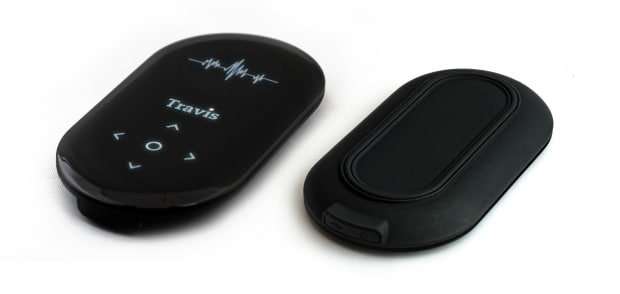Netherlands-based startup Travis is out to make people understood no matter what language they speak.
Travis was at the Consumer Electronics Show here late Tuesday with a small device capable of translating conversations between people speaking different languages in real time.
"Technology connects us as far as we are accessible to each other, but those true connections aren't going to happen until we all understand and are understood by each other," US Travis representative Robb Selander told AFP while demonstrating the gizmo at a CES event.
"We are driven to break down language barriers."
Travis synchs to computing in the cloud to translate any combination of 80 languages, and a Travis foundation is working to 'digitize' lesser known languages in the world.
"Once a language is digitized it can not only be used in translation technology like Travis but for education and preservation," said company international affairs manager Elissa Glorie.
Digitizing languages also means that those who speak it could get better shots at reaping benefits of technology advances such as voice-commanded computers or virtual assistants, according to Glorie.
Travis was founded early last year and launched an Indiegogo crowd-funding campaign in April that blew past the company's goal.
More than 80,000 Travis translation devices priced at $199 were pre-ordered, and most have been delivered, according to Selander.
Google late last year hit the market with Pixel ear buds capable of real-time translation of conversations in 40 languages.
Pixel Buds infused with its digital assistant smarts were quickly branded an internet-Age version of the alien "Babel Fish" depicted in famed science fiction work "The Hitchhiker's Guide to the Galaxy."
In the literature, inserting a Babel Fish in an ear enabled a person to understand anything spoken in any language.
Pixel Buds work wirelessly with second-generation Pixel smartphones to handle real-time translations.
© 2018 AFP























